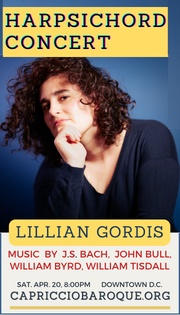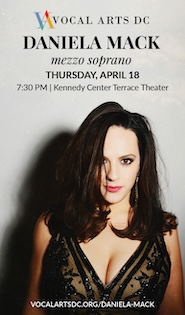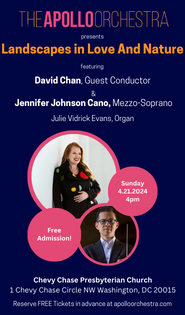Tenor Russell Thomas is breaking down operatic barriers with confidence

Russell Thomas sings the title role in Verdi’s “Don Carlo” which opens Saturday night at Washington National Opera. Photo: Fay Fox
Tenor Russell Thomas, a rising singer from Miami, makes his Washington National Opera debut this Saturday in the title role of Verdi’s Don Carlo. It is the company’s first production of this complex opera in over twenty years, and the final opera conducted by music director Philippe Auguin before he makes an exit from the company, announced last summer.
Recently Thomas spoke to Washington Classical Review by phone about his first appearance at WNO and what he loves about the role of Don Carlo, which he sang a few years ago at the Deutsche Oper in Berlin.
“My favorite part of the opera is the final duet (“Ma lassù ci vedremo in un mondo migliore”) with the soprano, in the last scene,” he says with enthusiasm. “It’s absolutely gorgeous, and I don’t think any part of it is particularly punishing. The more challenging parts for me are in the trio with Rodrigo and Eboli, only because it goes on and on and on. It never ends, and the tessitura sits quite high.”
Actually, about the top range, Thomas feels confident: “That’s in my wheelhouse, that’s where my voice likes to live. These days, a role like Don Carlo for me is probably one of the easier things that I sing, so I welcome it as a bit of a break.”
Verdi originally composed Don Carlos as a five-act grand opera for Paris, later revising it in Italian versions for different theaters in his home country. WNO will perform one of the Italian versions in four acts, with the Fontainebleau first act and the Act III ballet cut from the score.
“Originally, this was supposed to be the five-act French,” says Thomas. “When I originally signed on for it, I was hoping to do it in French for the first time, just for the challenge of singing the longer version of the role.” He thinks the French version was scrapped for financial reasons, even though the cast all wanted to do the longer original.
Tim Albery directs this new production, the same one that Eric Owens and Leah Crocetto sang in for Opera Philadelphia in 2015. Does Thomas have a preference for traditional or non-traditional when it comes to opera staging?
“I like a modern take,” he says, “if I can make sense of it and if there is some perspective that adds to the piece. The director I have worked with more than anybody else is Peter Sellars. So I’m used to someone taking a work and turning it on its head, making a statement that has nothing to do with the story but that is relevant to today.”
At the same time, some operas work better with more traditional stagings. Thomas recently sang the Zeffirelli La Bohème at the Metropolitan Opera, the definition of traditional in operatic staging. “People who have seen it know every single move you are going to make before you make it,” he says. “For me as a performer, that was more nerve-wracking than the singing. Every great tenor of the last thirty-five years has sung it, and everybody knows what it’s supposed to look and sound like.”
The tenor’s only appearance in Washington up to this point was also in Verdi, in Washington Concert Opera’s performance of I Masnadieri with Washington Concert Opera for the Verdi bicentenary in 2013. Thomas replaced another tenor at short notice and was remarkable in the role, even though he had not been engaged as a cover singer.
“At the very last minute, like a week and a half before,” he remembers, “I got the call and I got the score. I asked if I could sing it on book, and they said I could. I would have loved to have a month and a half with the score, but it was what it was. Those kinds of things are how careers are made. You jump in and you are able to save the ship.” In other words, he learned a role in an obscure Verdi opera in a week and a half.
When did Thomas discover that his voice had the kind of power to sing a Verdi tenor role? “I was an opera queen from when I was eight years old,” he recalls with a laugh. “I heard my first opera when I came home from school one day. I turned on the radio, heard an opera being sung, and was instantly pulled into it. I don’t know why. No one in my family was inclined, but I heard these people making these sounds and I was caught up in it.”
The director of his high school choir in Miami brought mezzo-soprano Joy Davidson to hear some of the choir’s young singers. She counseled Thomas to study to become an opera singer. Fortunately for him, his high school participated in a program with the Greater Miami Opera, later known as Florida Grand Opera, where they allowed high school students to go to dress rehearsals.
“I saw everybody from Simon Estes to Pavarotti, Sherrill Milnes, James Morris singing the Dutchman,” he reminisces fondly. “Diana Soviero singing all the verismo stuff. I got to hear some really good singing, old-fashioned guts and glory singing.”
Even with this kind of early access, how easy was it for Thomas, as a young African-American singer, to break into the world of opera?
“It was difficult for me,” he responds, “but not as difficult for me as it was for other people. Tenors have it a little bit easier, and I’ve never had a problem with the top part of my voice. Who doesn’t want a tenor with the high notes?” Even so, he remembers a conductor from a small, Midwestern opera company who told him he would never have the career he deserved because he is black. Other times he has instead received off-color comments tinged with racist attitudes.
“Like someone who said, ‘If I close my eyes, I’d think a real Italian was singing’,” he says with a bitter laugh. “As if they can’t recognize my blackness because that doesn’t fit with what they think opera should be, so they have to close their eyes to listen to it.”
Thomas sees these outdated viewpoints as part of the reason why opera and classical music seem to be dying in some people’s views. Too many opera companies for too long only reached out to to black communities in February,” he adds, “for Black History Month.” The problem starts at the top, he asserts. “There are hardly any black men and women working in the back office making major decisions. There are hardly any black agents or artist managers, if any, because no one seems to cultivate minorities in that way.”
“If you don’t have black people in the back office,” he says plainly, “you won’t have black people on stage. If you don’t have black people on stage, you won’t have black people in the audience. It’s an endless cycle of neglect.” Some companies have diversified before they got into financial hardship, like Michigan Opera Theater in Detroit, he adds. “For a city that for so long was economically depressed they still had an opera company and a symphony. I think the reason why is because they diversified their audience.”
Some other companies that have not yet taken these steps are struggling. “People want to see people on stage who look like them,” he concludes. “The Metropolitan Opera is about 50 yards from the projects, yet still they do not give tickets to dress rehearsals to people in the projects. If they did, what child might see a dress rehearsal like me? That would be life-changing for him.”
Thomas has big plans coming up in the future, including his first staged Otello with Toronto’s Canadian Opera in 2019 and a theatrical version of Mahler’s Das Lied von der Erde with the L.A. Philharmonic. “That’s one of my favorite pieces,” he says. “I’m looking forward to the staged version, it’s going to be very interesting.”
He also has one Wagner role he is dying to sing–Tannhäuser, and he has that opera on the books now, but not announced by the company. Stay tuned for the future.
Washington National Opera’s production of Don Carlo opens 7 p.m. Saturday and runs through March 17 in the Kennedy Center Opera House. kennedy-center.org; 202-467-4600.







